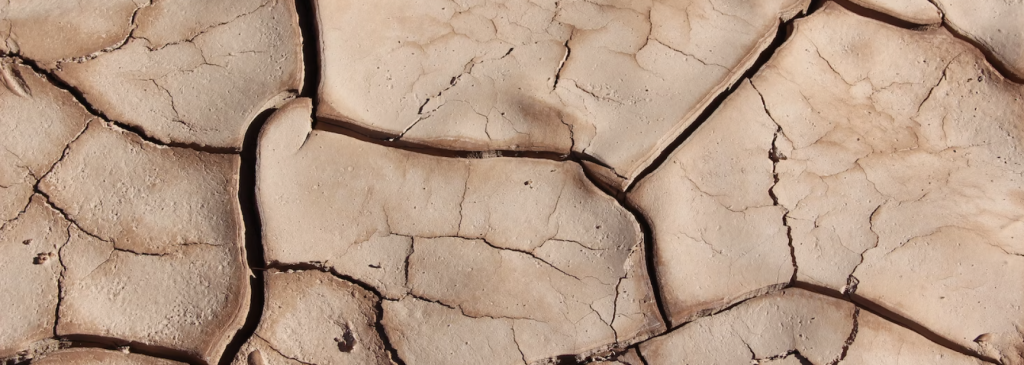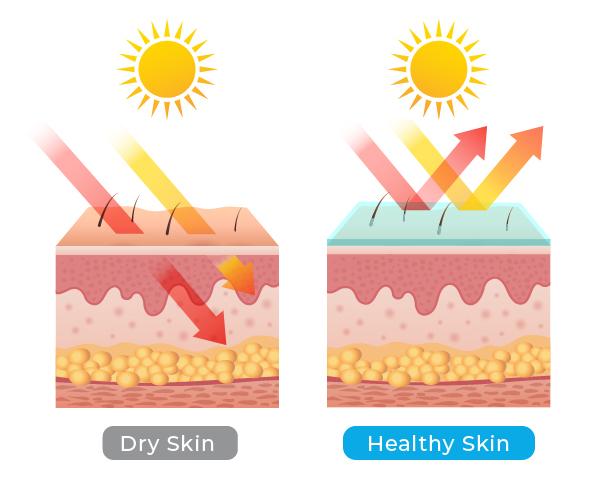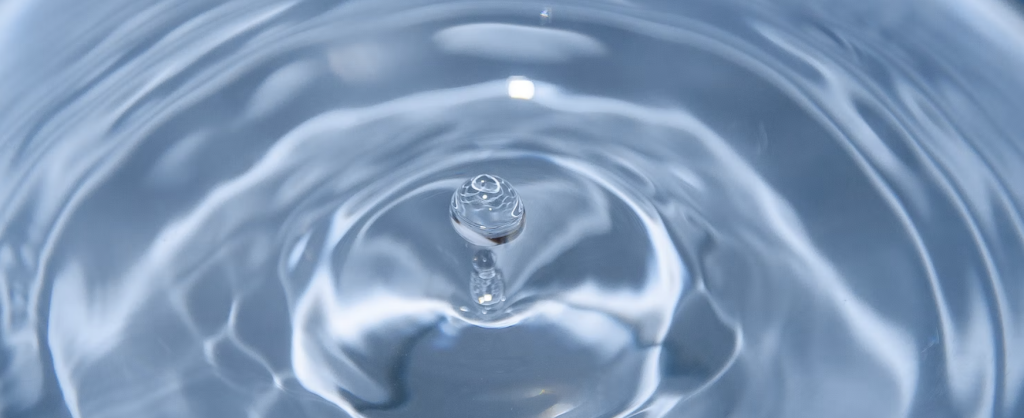Dehydration of the skin is essentially defined as the lack of water in the skin. Whether you have a dry, oily or combination skin type, there is a possibility that your skin will suffer from dehydration. However, the effects it has on your skin type can vary. Although it might seem difficult to treat, some lifestyle changes and effective hydrating facials can help to alleviate dehydrated skin.
What is the Difference Between Dry Skin and Dehydrated Skin?
Although both dry and dehydrated skin can have similar effects on the skin, its root causes are completely different. Dry skin is caused by the lack of sebum (natural oil produced by the skin) whereas dehydration is caused by the lack of water present in the skin. A person with dry skin may have a skin condition, such as dermatitis or eczema. Frequent contact with soap and water can also cause dry skin by stripping the oils present in the skin. Additionally, some people naturally have drier skin than others.
Dehydration is a condition of the skin which can be treated with both aesthetic treatments such as effective hydrating facials and a few lifestyle changes. In contrast, more often than not, dry skin is a skin type and can be managed but not fully treated. Some methods of relieving the effects of dry skin include using skincare products such as oils and creams that are easy on the skin.
Symptoms of Dehydrated Skin

Dehydrated skin can present itself differently in many people. Generally, common symptoms of dehydrated skin include patches of itchy and sensitive skin, dark circles under the eye, flaky skin and wrinkly skin. These symptoms most commonly start to show on the face, where the skin might be more prone to congestion and acne.
One way to test if you have dehydrated skin is to pinch a part of the cheek and instead of bouncing back to its original position or if there are any wrinkles, it is a sign that you might be suffering from dehydrated skin.
What causes dehydrated skin?

Common causes of dehydration are not drinking enough water, sweating too much, losing fluids through diarrhea or vomiting, and suffering from a fever or sunburn. There are also environmental factors such as strong cold winds, ultraviolet rays from the sun and pollution, lifestyle factors such as tobacco or alcohol, emotional factors such as stress and fatigue. In addition, certain supplements and cosmetic products such as anti-acne products can strip your skin of its moisture and disturb the microbiome of the skin.
Certain skin conditions can lead to dehydrated skin. Such examples eczema and psoriasis, which are the results of compromised skin barrier. By extension, there are some medications that can affect the balance of fluids in the body, like antihistamines, diuretics, laxatives, and blood pressure drugs.
How Can I Keep My Skin Hydrated?
Apart from indulging in effective hydrating facials, you can keep your skin hydrated through some simple yet effective lifestyle changes. For example:
- reducing alcohol and coffee consumption
- quitting smoking
- keeping a regular exercise schedule
- drinking water every 20 minutes at minimum during the workout
- consuming more fruits and vegetables
- getting enough sleep
In addition to such steps, it is recommended that you follow a regular skincare routine with products that are catered to rehydration and sensitive skin. Ingredients that have the ability to hold moisture to your skin can be added to your regular skincare routine. These include humectants such as glycerin, hyaluronic acid, and squalene. However, take note that mileage can vary depending on the individual as there are reports of hyaluronic acid being drying in already dry environments. Similarly, avoid products that dry out or irritate the skin. Some examples of irritating ingredients are tea tree oil, salicylic acid, benzoyl peroxide, and topical acne medications.
Another facet of moisture is the external moisture around your skin. For people in drier environments or are prone to dry or dehydrated skin, installing a warm mist humidifier in your living space may help. Avoiding being in an air-conditioned environment would help keep moisture in your skin too.
Treatments for Dehydrated Skin

The first thing to consider is the moisture content of your body. For mild dehydration, drinking more water or sports drinks can help replace the fluids and electrolytes that have been lost. There are also oral rehydration solutions that can be purchased over-the-counter. Severe cases may be treated with intravenous (IV) fluids with salt in a hospital.
Aesthetic treatments such as effective hydrating facial treatments such as Skinboosters and Hydrafacial improve skin hydration.
Effective hydrating facial treatment: Skinboosters
Skinboosters are injectables that improve skin texture, elasticity, hydration and overall appearance. The treatment involves injecting hyaluronic acid under the skin. The treatment improves the skin’s elasticity, firmness and radiance giving an overall dewy youthfulness.
Effective hydrating facial treatment: HydraFacial
It is a gentle treatment that is safe for all types of skin, including those with sensitive skin. In a HydraFacial, the skin is cleaned, exfoliated, pores are extracted, and customised serums are applied.
The provider vacuums out dead skin cells and other pore-clogging debris using attachments on a handheld device. In addition, a mild peel is administered for exfoliation. Finally soothing and hydrating active ingredients such as antioxidants, hyaluronic acid, and peptides, are infused into the skin.
Effective hydrating facial treatment: Hann Tremella Hydrate
Hann Tremella Hydrate effectively harnesses the ultra-hydrating properties of Tremella in facial treatments. Unlike artificial ingredients, Tremella does not negatively affect the skin’s natural balance. Hann Tremella Hydrate improves the appearance of dull or dry skin by stimulating skin regeneration, thereby improving vibrancy and hydration.
Give your skin the hydration boost it needs!

Leave a Reply